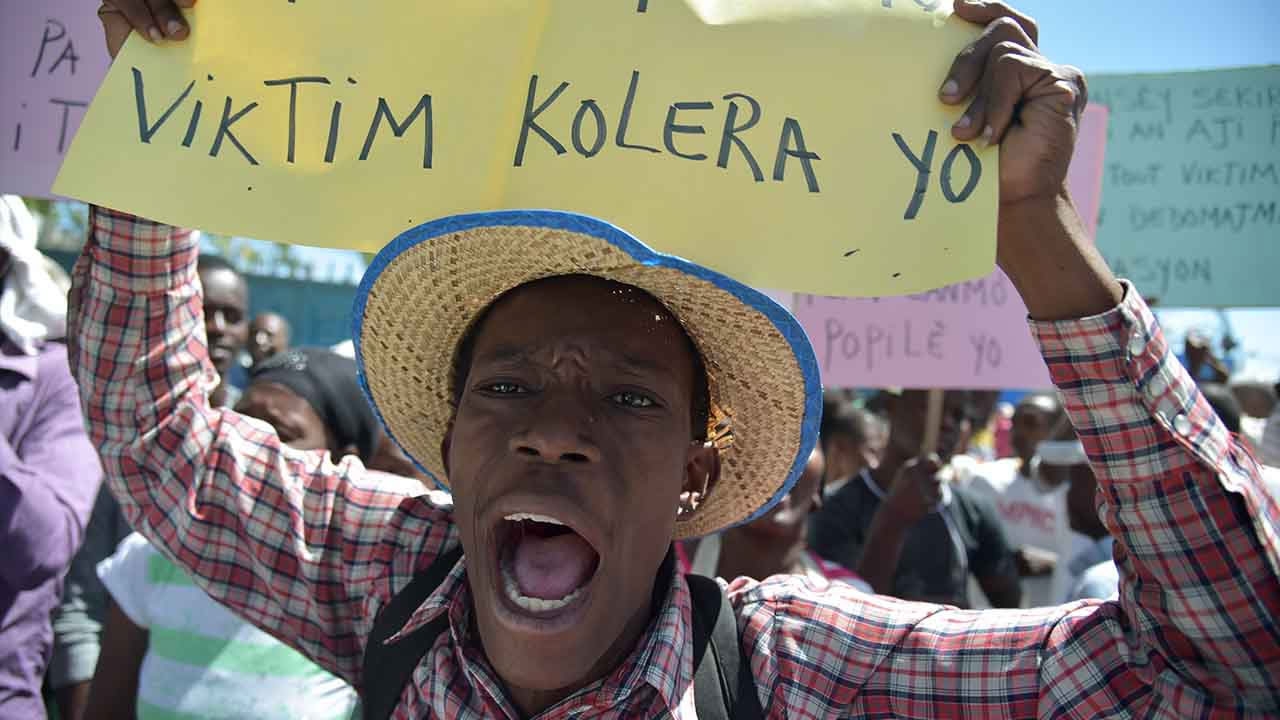
China
09:58, 24-Jun-2017
UN urges fight against a cholera epidemic it accidentally started in Haiti

The United Nations stressed on Thursday its support for eradicating cholera in Haiti, an epidemic it accidentally started, although the government said residents would be better served if aid funding was channeled through it.
The UN secretary-general on Tuesday appointed a new special envoy for Haiti tasked with leading fundraising efforts for the plan to beat cholera, introduced in 2010 when peacekeepers dumped infected sewage into a river.
"We acknowledge that there's a problem and we are here to reiterate the commitment of the United Nations and the international community to work together to fight this problem and to work to solve it," Bolivia's UN Ambassador Sacha Sergio Llorentty Soliz told journalists at the national palace.
Llorentty is also president of the UN Security Council for the month of June.
Haiti's Minister of Foreign Affairs Aviol Fleuriant said the UN Security Council and the government had discussed plans for better management of aid in a closed-door meeting.
"A large part of aid travels through NGOs ... which could be used to efficiently and sustainably finance the implementation of public policy through governmental channels," he said.
The Security Council voted unanimously in April to end its 13-year-long peacekeeping mission in Haiti and replace it with a smaller mission, which would be drawn down after two years as the country boosts its own force.
The peacekeeping mission, one of the longest running in the world and known as MINUSTAH, has been dogged by controversies, including the introduction of cholera to the island and sexual abuse claims.
As members of the Security Council touched down in Haiti on Thursday, some 200 people assembled outside the UN base with posters and signs calling for reparations to individual cholera victims and demanding an end to MINUSTAH and the follow-up mission.
"If MINUSTAH hadn't brought cholera here, I wouldn't have had cholera," said Renette Charedy, a 36-year-old standing at the fringes of the protest.
The UN does not accept legal responsibility for the outbreak of the disease, which causes uncontrollable diarrhea. Some 9,300 people have died and more than 800,000 sickened due to cholera and Haiti's government believes the UN still has work to do on it.
(Source: Reuters)

SITEMAP
Copyright © 2018 CGTN. Beijing ICP prepared NO.16065310-3
Copyright © 2018 CGTN. Beijing ICP prepared NO.16065310-3